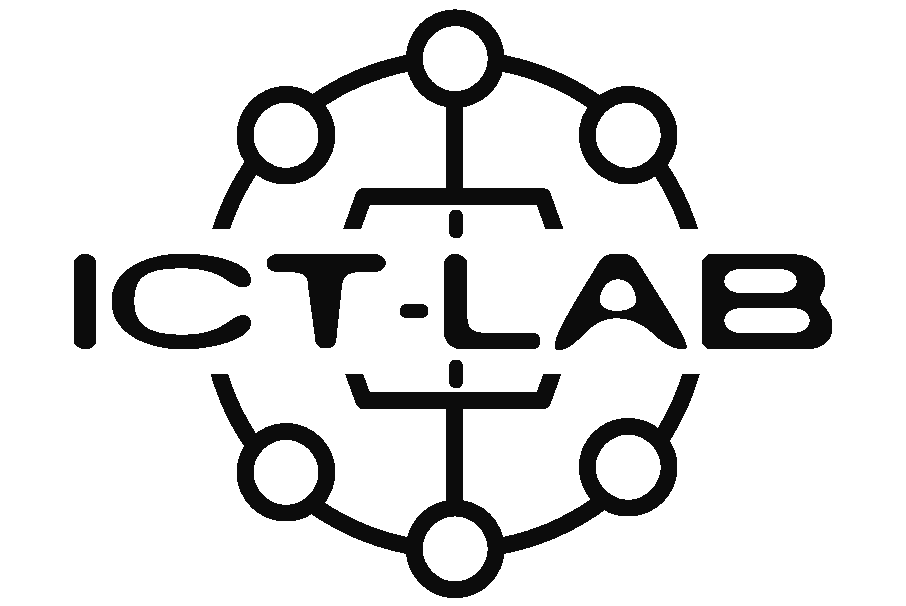Update: 2025-01-07 17:00
ICT-LAB :: Направления исследований
Специальности 1.2.2 и 2.3.1
и потенциально 1.2.1
- Information theory utilization in LLM size reduction with constant precision
Теория информации в очистке данных для обучения с целью снижения размера модели ИИ без существенной потери точности
Training data adjustment (“cleaning”) for parametric redundancy deflation by information theory methods. This approach has to provide 2 methodological benefits:- Help to evaluate input data for training to improve quality of training sets automatically (without manual tuning);
- Help to setup optimization problem of LLM pruning and deflation (also automatically to exclude handmade job).
-
Video-stream object grounding technologies in general artificial intelligence systems
Применение технологий видео-потоковой привязки объектов в системах общего искусственного интеллекта - Speculative RAG
- Fusion techniques in multi-modal AI development: MoE, collaborative LLMs, parallel scheduling, etc.
- Inference computing in memory based on memristor technology
- High Precision Channel Modeling and Wireless Propagation Environment Reconstruction Technique
Специальности 2.2.13 и 2.2.15
-
Tensor Embedding Processing: Towards Scalable 6G MIMO
Обработка тензорных ядер: подход к масштабируемым 6G MIMO-системам
Данное диссертационное исследование предполагается по специальности 2.2.15.В рамках данной работы у аспиранта будет возможность реализовать базовые особенности 5G-Advance R18/R19 на программно-аппаратном прототипе базовой станции. Основная цель, модифицировать L1/L2 LTE 8T8R под 5G решение 64T64R. После запуска полноценного MIMO-64 будет возможность реализовать алгоритмы обработки тензорных ядер канала и провести лабораторные и полевые испытания в тестовых зона 5G.
Аспирант сможет совместить исследовательскую и практическую деятельности и довести свои идеи до прототипирования. В случае весомого прироста производительности соты и устойчивости решения - есть шанс попасть в тестовую эксплуатацию на реальной сети МТС.
Аспирантура МФТИ 2025, направление Телекоммуникации (ФРКТ, кафедра мультимедийных технологий и телекоммуникаций, рук. доц. Ляшев В.А.).Работа с прототипом БС предполагает инженерную позицию с конкурентноспособной оплатой труда при полной занятости.
-
6G Control Channel Capacity Enhancement for Scalable 6G MIMO System
Повышение ёмкости канала управления 6G в масштабируемых MIMO-системах"
Данное диссертационное исследование предполагается по специальности 2.2.15.В рамках данной работы у аспиранта будет возможность реализовать контрольный канал 5G-Advance R18/R19 на программно-аппаратном прототипе базовой станции. Основная цель, модифицировать расширить возможности сигнального уровня LTE 8T8R под 5G решение 64T64R для повышения эффективности MU-MIMO режима. После запуска полноценного MIMO-64 будет возможность реализовать алгоритмы мультиплексирования контрольных каналов и провести лабораторные и полевые испытания в тестовых зонах 5G.
Аспирант сможет совместить исследовательскую и практическую деятельности и довести свои идеи до прототипирования. В случае весомого прироста производительности соты и устойчивости решения - есть шанс попасть в тестовую эксплуатацию на реальной сети МТС.
Аспирантура МФТИ 2025, направление Телекоммуникации (ФРКТ, кафедра мультимедийных технологий и телекоммуникаций, рук. доц. Ляшев В.А.). Работа с прототипом БС предполагает инженерную позицию с конкурентноспособной оплатой труда при полной занятости.
-
Source-Channel Coding and Decoding
(cross-layer design and optimization theory, joint prediction and matching of source and channel, and hierarchical multi-QoS coding and transmission) - Deterministic latency coding (limited code length theory and ML-like decoding)
-
Index Modulation Theory and Technology
(Multidimensional Independent & Joint Modulation of Time-frequency Space Code) - Waveform in high speed movement (OTFS)
-
Data + model-driven AI communication theory
(End-to-end design, non-linear, non-Gaussian, multi-objective optimization) -
AI-based proactive environment sensing theory
(channel sensing, signal feature extraction, and service prediction) - A channel-space/frequency/polarization extrapolation technology based on the correlation of radio channel characteristics between multi-band, cross-space, and multi-polarization.
- Research on the Theory of Multi-antenna Coded Modulation
- Channel Prediction of Low Frequency Assisted High Frequency
- Distributed Network Capacity Optimization Theory
- SRS channel estimation measurement for extremely low SINR
- Intelligent Reflector Technology (IRS)
